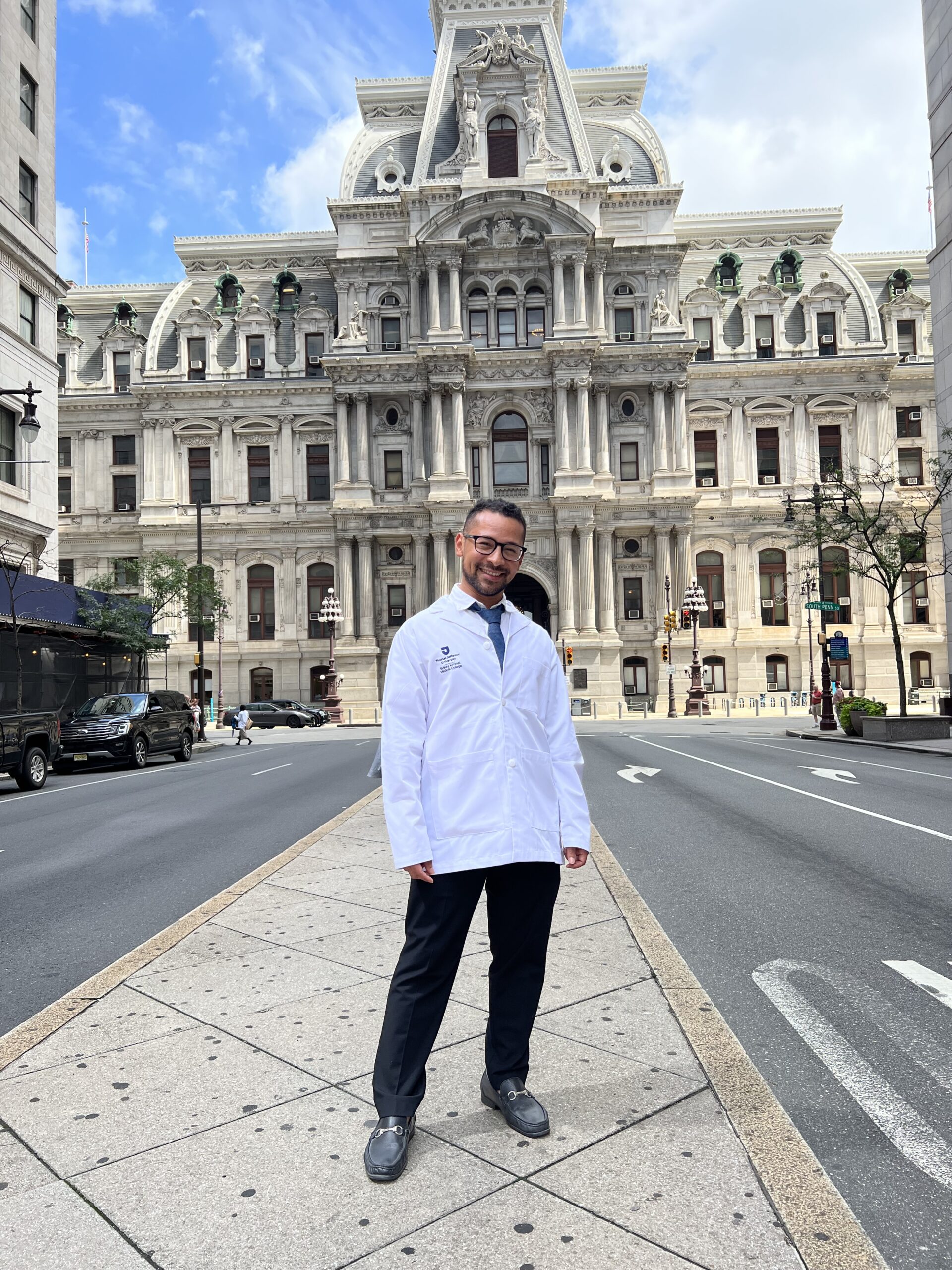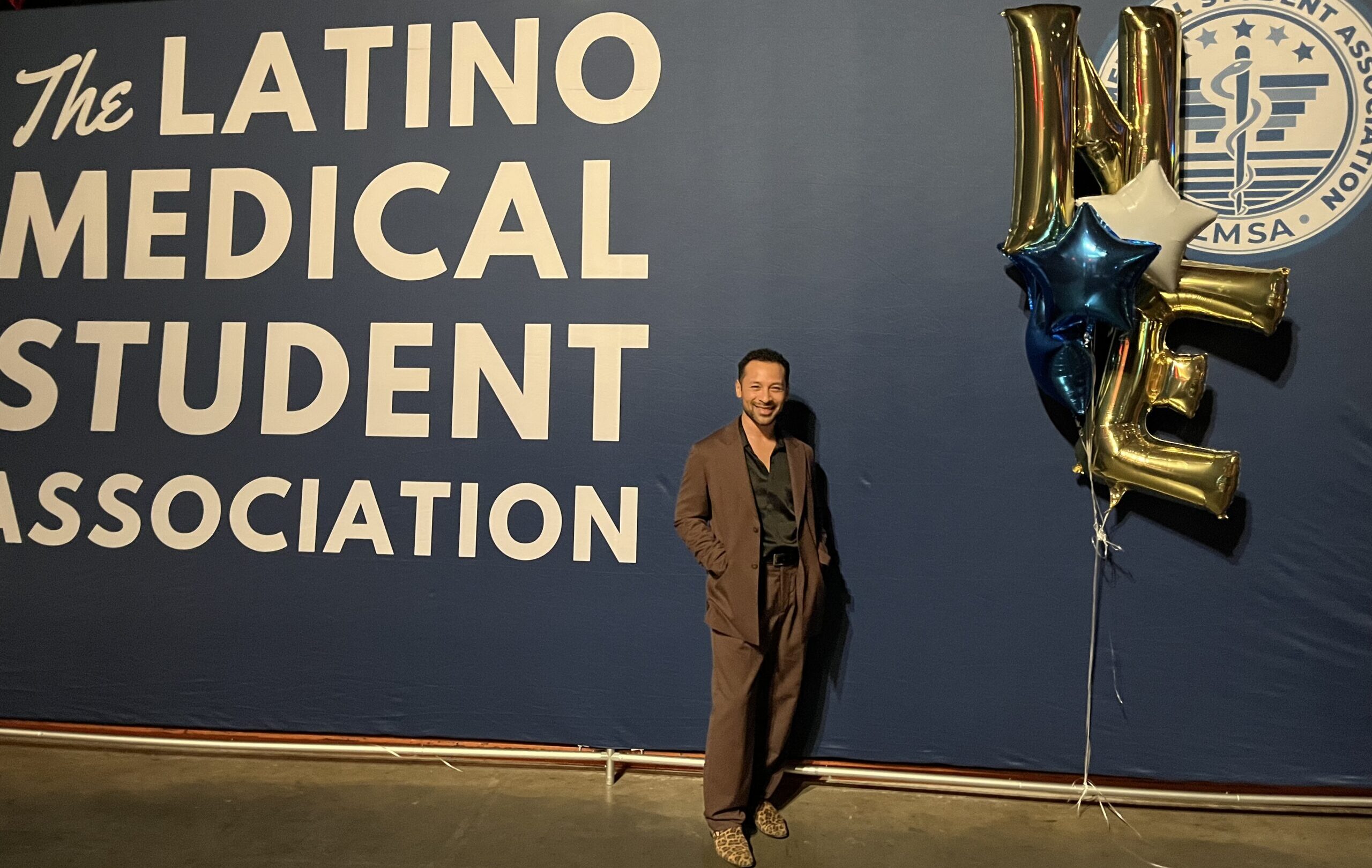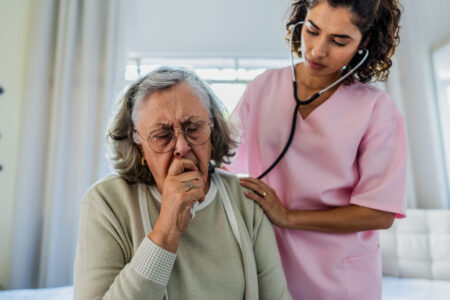Share On Social!
Born in Los Angeles to a Guatemalan mother and Mexican father, Josue Diaz-Melendez grew up in a vibrant Latino neighborhood, shaped by heritage and community.
From a young age, Diaz-Melendez had a clear mission—to help his people and all people.
That drive led him to pursue dentistry, where he could help people achieve healthier smiles.
But he soon saw a chance to transform lives beyond the dentist’s chair.
Making a Switch
Diaz-Melendez worked hard to earn his bachelor’s in biology at the University of Southern California (USC) and later his doctorate in dental surgery at Columbia University.

He moved to Philadelphia and began working as a dentist at St. Christopher’s Hospital for Children, fulfilling his goal of helping people.
However, as Diaz-Melendez started working to improve oral health, he noticed that many of his patients needed help with more complex health needs.
“I wanted to be that provider for them. That’s kind of what inspired me. I want to be able to do more than just teeth. I want to be able to take care of the person as a whole,” Diaz-Melendez said.
So, he decided to become a doctor.
Today, Diaz-Melendez is a third-year medical student at Sidney Kimmel Medial College at Thomas Jefferson University, where he is learning to become a healthcare professional who can contribute to the well-being of his patients and communities, including infection prevention and control.
Facing Challenges Along the Way
Changing your career and going back to school can drive fear of failure and add pressure to prove yourself all over again.
It was a “scary decision,” Diaz-Melendez said.
But, for him, he had already learned resiliency in the face of a challenge.
For example, he was a first-generation student in higher education.
“I’m the first one in my family to go to college, so [being a first-generation student] was an obstacle that I had to kind of figure out sometimes,” Diaz-Melendez said.
He had to start off with no mentors, either.
“When you’re going to the next step, like grad school, having that sort of mentorship is so important. Because, I mean, I can’t ask my mom, ‘How do I go to med school?’”
Thankfully while in undergrad at USC, Diaz-Melendez found faculty mentors when he participated in a research summer program.
His mentors have him encouragement when deciding to switch to focus on medicine.
“The mentors I had said, ‘You have an entire life ahead of you. It’s a very long career, and I want to make sure that you’re happy. So, if it means you have to switch, I encourage you to do it.’ I just needed that little push, you know,” Diaz-Melendez said.
Finding Support and Encouragement
Similar to the advice that he received when making his own decisions, Diaz-Melendez urges people to think about their impact as they pursue their education in medicine.

“Just think about where you want to be at the end of the tunnel and what you can bring to the table to help your family and community, especially, being Latino,” Diaz-Melendez said.
With Diaz-Melendez living in Philadelphia while his family is in California, he also emphasized the importance of a good support system.
“Having a really great friend support group is the best thing ever. I mean, all my family live in California, so here in Philly, I don’t have my siblings or my cousins, but having those friends that you could just, like, go out to dinner with, or go to the movies,” Diaz-Melendez said.
The Importance of Infection Control Resources
Diaz-Melendez is on his way to becoming a doctor and helping people.
A big part of life as a doctor is learning infection prevention and control, which can protect both patients and frontline healthcare workers from spreading diseases.

That is why the U.S. Centers for Disease Control and Prevention (CDC) launched Project Firstline, a training and education collaborative designed to ensure all healthcare workers, no matter their role or educational background, have the infection control knowledge and understanding they need and deserve to protect themselves, their patients, and their coworkers.
Diaz-Melendez appreciates the CDC Project Firstline educational materials, from hand hygiene to wearing PPE to cleaning and disinfection.
“Having those [Project Firstline] resources are important because being like, on Tik Tok or Instagram, sometimes there’s a lot of [incorrect information] that kind of just spread everywhere that may not necessarily be true and that could actually be dangerous,” Diaz-Melendez said.
Diaz-Melendez also highlighted how the educational tools and resources from Project Firstline can support all healthcare professionals, including medical students from different backgrounds.
“Having that sort of training will allow you to be able to answer those [patient] questions. Just in general, anyone that has a question [on infection control], it makes you a person with credibility,” Diaz-Melendez said.
Promoting Infection Control in Your Healthcare Setting
Where can healthcare workers and aspiring medical professionals find educational tools and resources on infection control and prevention?
You can help keep yourself, your colleagues, and your patients safe from infectious disease threats by building your infection control knowledge!
To show your dedication, sign this pledge to complete an infection control training or activity through CDC’s Project Firstline!
You can also share infection control training opportunities with healthcare colleagues via LinkedIn with our Project Firstline social media toolkit.
You can access more information about infection prevention and control in healthcare by visiting resources from CDC Project Firstline.
Salud America! at UT Health San Antonio is working with the National Hispanic Medical Association to bring Project Firstline infection control educational content to healthcare workers, so they are equipped with the knowledge they need to protect themselves, their facilities, and their patients (Latinos and all communities) from infectious disease threats in healthcare settings.
Check out some of the articles from this partnership:
- What is Project Firstline?
- What is the Goal of Infection Prevention and Control in Healthcare Settings?
- What’s a Virus?
- What is Ventilation and Why Does It Matter?
- Contact Time: What is It and How Does it Impact Infection Control?
- The Surprising Difference Between Cleaning and Disinfection
- What’s a Respiratory Droplet and Why Does It Matter?
- Mpox: Preventing the Spread in Healthcare
- Measles: Preventing the Spread in Healthcare
Check out some of the Latino healthcare workers who are heroes for infection control:
- Anna Valdez: Tackling Infection Control with Education from Classroom to Clinic
- Wanda Montalvo: Preventing Infections in Community Health Centers, Latino Communities
- Ricardo Correa: Endocrinologist and Infection Control Leader for the Latino Community
- Jorge Moreno: Infection Control Hero for Spanish-Speaking Latinos and All Patients
- Veronica Ramirez: Keeping Her Community Health with Infection Control
- Juanita Mora: A Voice for the Latino Community and Infection Control
- Carlos Salama: Protecting Latinos Against Infectious Diseases
Learn More about Project Firstline!
Editor’s Note: This article is part of a collaboration between Salud America!, the National Hispanic Medical Association, and the CDC’s Project Firstline. To find resources training materials, and other tools to bolster knowledge and practice of infection control, visit Project Firstline and view Salud America!’s infection control content.
By The Numbers
142
Percent
Expected rise in Latino cancer cases in coming years
This success story was produced by Salud America! with support from the Robert Wood Johnson Foundation.
The stories are intended for educational and informative purposes. References to specific policymakers, individuals, schools, policies, or companies have been included solely to advance these purposes and do not constitute an endorsement, sponsorship, or recommendation. Stories are based on and told by real community members and are the opinions and views of the individuals whose stories are told. Organization and activities described were not supported by Salud America! or the Robert Wood Johnson Foundation and do not necessarily represent the views of Salud America! or the Robert Wood Johnson Foundation.



